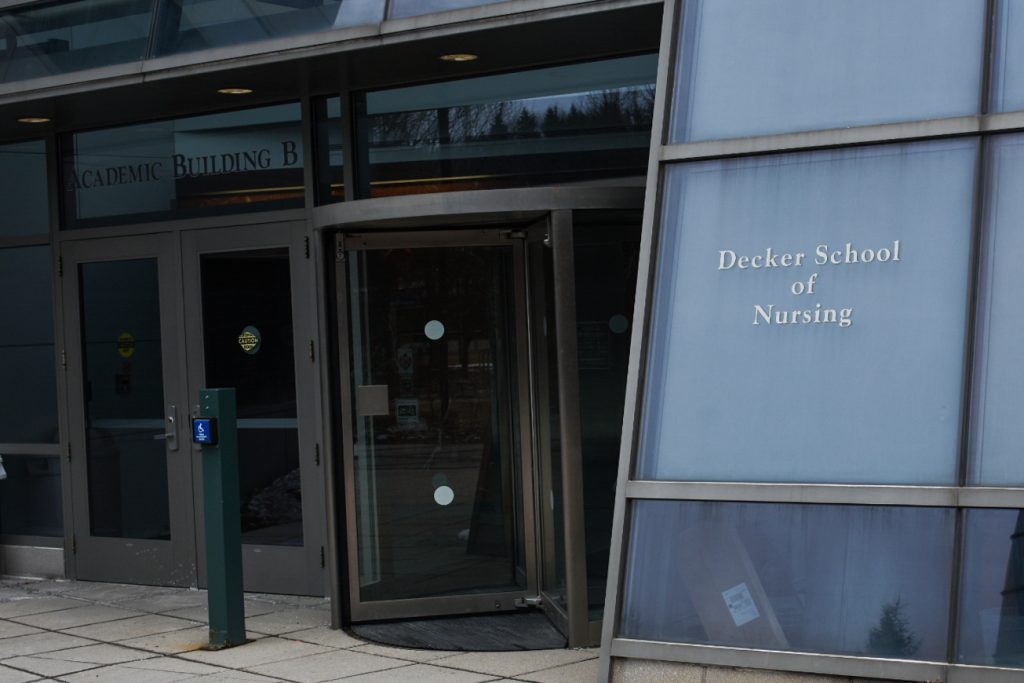
The National Organization of Nurse Practitioner Faculties (NONPF) recently endorsed the doctorate of nursing practice (DNP) as the necessary degree for nurse practitioners, prompting Binghamton University to phase out its master’s advanced practice specialty programs.
The Decker School of Nursing at BU will be replacing the programs with a DNP curriculum that will begin in fall 2020. Nicole Rouhana, director of graduate nursing programs, wrote in an email that the school is attempting to address the recommendations offered by national organizations and that by 2025, the NONPF will require that all entry into nurse practitioner practice be at the doctoral level.
According to Rouhana, the Decker School of Nursing will offer DNP programs for family nurse practitioners, adult gerontology nurse practitioners, family psychiatric mental health nurse practitioners and community health primary care nurse practitioners. The last cohort to the master’s advanced practice specialty programs will begin classes in fall 2019. However, the school will continue to offer master’s programs in nursing education and nursing administration.
“The curriculum will build on the master’s curriculum and include the addition of information technology, organizational behavior and management along with epidemiology and advanced diagnostics,” Rouhana wrote. “There are also 500 hours of additional clinical experiences. We are hopeful that this will allow this students to really examine the health care system in which they practice and explore innovative ways to address population health and improve outcomes.”
To obtain a DNP, the program will require students to submit a DNP Scholarly Project. Through this initiative, the Decker School of Nursing hopes to spur graduates of the program to aid health care policy and quality in New York.
“In addition to training to become highly competent nurse practitioners, students will also be required to complete a doctoral project, known as the DNP Scholarly Project,” Rouhana wrote. “This must be related to either health policy or advocacy, program and quality improvement or improving patient or population health outcomes. Because the [Decker School] mission and goals address rural and vulnerable populations, we are excited that our students will be contributing to improving the health of New York state and the region.”
The DNP program will take three years to complete, as opposed to the two years needed for the traditional master’s degree, according to Rouhana.
Nicole Metrick, a sophomore majoring in nursing, said the new DNP program could affect her future studies and career.
“If I decide to go into teaching, research, policy making or other similar fields, I will probably decide to obtain my DNP,” Metrick said. “Currently, it is not in my plan to get this degree because I enjoy bedside nursing, but I have it in the back of my mind should my interests change.”


